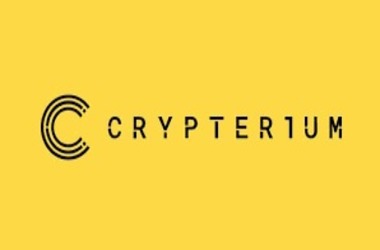 With the introduction of a legislative structure for investment tokens today, the Dubai Financial Services Authority (DFSA) has taken another step forward in its acceptance of cryptocurrencies. In the initial two stages of the DFSA’s digital assets framework, the new regulations control security and derivative tokens, which are the subject of the new regulations.
With the introduction of a legislative structure for investment tokens today, the Dubai Financial Services Authority (DFSA) has taken another step forward in its acceptance of cryptocurrencies. In the initial two stages of the DFSA’s digital assets framework, the new regulations control security and derivative tokens, which are the subject of the new regulations.
In the previous four years, there have been a lot of “false beginnings” in the security token industry, so any advancement is really welcome, according to Omar Rahim, the Middle East and North Africa director of cryptocurrency trading platform Binance, according to Arabian Business.
“We think that security tokens have the potential to double the size of the crypto space by a factor of 100, and as a result, we will be keeping an eye on the scene.”
Exchange-traded, utility-backed, and fiat-backed tokens (also known as stablecoins) are still unregulated. DFSA said in a statement that it is developing suggestions for additional tokens, including cryptocurrencies, which are intended to meet those three categories. A second “consultation document” is planned to be released later this year, according to the organization.
According to Rahim, “this expands on the work that is already underway in the crypto regulatory area in the UAE as a whole.” In terms of the industry, this is encouraging news. “The United Arab Emirates seems to be taking the lead in regulating this rapidly evolving industry.”
Persons or companies interested in marketing, issuing, trading, or holding investment tokens in or out of the Dubai International Financial Centre are subject to the regulatory framework governing investment tokens (DIFC). Investment tokens are covered by this regulation, as are authorised firms that wish perform financial services relating to investment tokens. These services include trading in, providing advice on, or arranging transactions involving investment tokens, as well as managing discretionary portfolios or collective investment funds that invest in investment tokens.
“Creating an environment for creative enterprises to succeed in the UAE is a critical objective for both the UAE and Dubai governments, as well as the DFSA,” said Peter Smith, managing director and head of Strategy, Policy, and Risk at the DFSA. “In response to our consultation on investment tokens, we were able to better understand what enterprises were seeking for in a regulatory framework and implement a regime that was relevant to the market. Interested enterprises should submit their application to the DIFC, and we look forward to contributing to the continuous expansion of future-focused financial services in the DIFC.”
Cryptocurrency regulation is a hotly debated topic throughout the world, with some nations, such as the United Arab Emirates, welcoming the technology, while others, like as China, have outright prohibited trade and mining while simultaneously building their own state-backed digital cryptocurrency. Sir Jon Cunliffe, deputy governor of the Bank of England, has warned that digital currencies might precipitate a financial catastrophe similar to the one that occurred in 2008 if countries do not enact stringent regulatory measures.
Cheeze Inc. was founded by Simon Hudson (shown below), who is also the company’s CEO. He told Arabian Business: “It is my belief that regulating tokens is a positive move in the right way. Although blockchain technology is still in its infancy, its widespread acceptance and high daily trading volume demonstrate that it is here to stay. By introducing an underpinning regulatory framework, blockchain tokens will be able to penetrate even farther into the mainstream.”
A new way to participate in a company’s success is to invest in a token that supports an established business or a growing start-up. Regulating this new way to participate in a company’s success gives investors looking to enter the space confidence “In a space where everyone is still learning, I believe it is critical to have structure and regulation in place to ensure that people feel secure and reassured of their choices. I feel that the relocation will result in a fresh influx of individuals into the space.”
The government of Dubai has embraced the technology that individuals working in the financial sector believe will be the future of finance. Earlier this month, the Securities and Commodities Authority (SCA) and the Dubai World Trade Centre Authority (DWTCA) announced the signing of an agreement to support the regulation of crypto assets, as well as the offering, issuance, listing, and trading of crypto assets and related financial activities within the free zone administered by the Dubai World Trade Centre Authority.
The Dubai Multi Commodities Centre (DMCC), a commodities trade and enterprise free zone, said in March that it will collaborate with the SCA to develop a regulatory framework for enterprises that provide, issue, list, and trade cryptocurrency assets.








